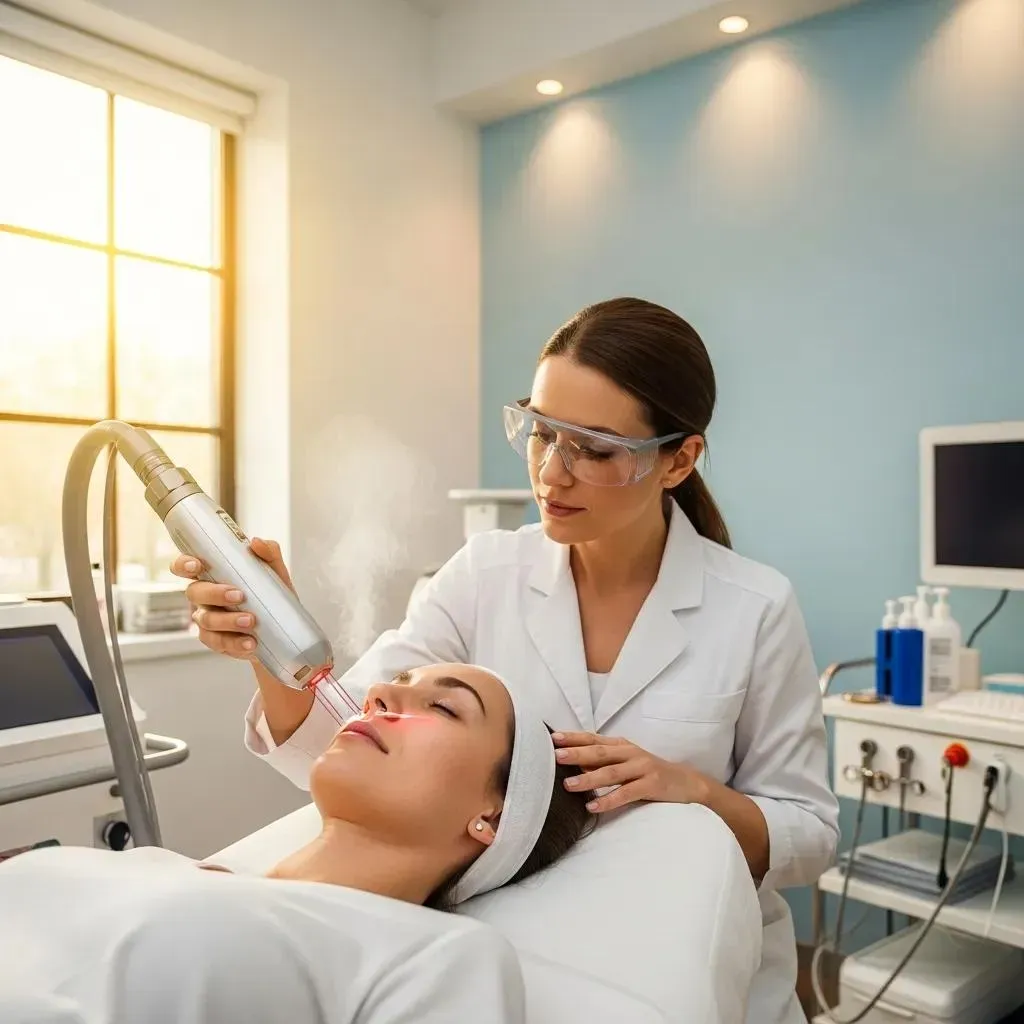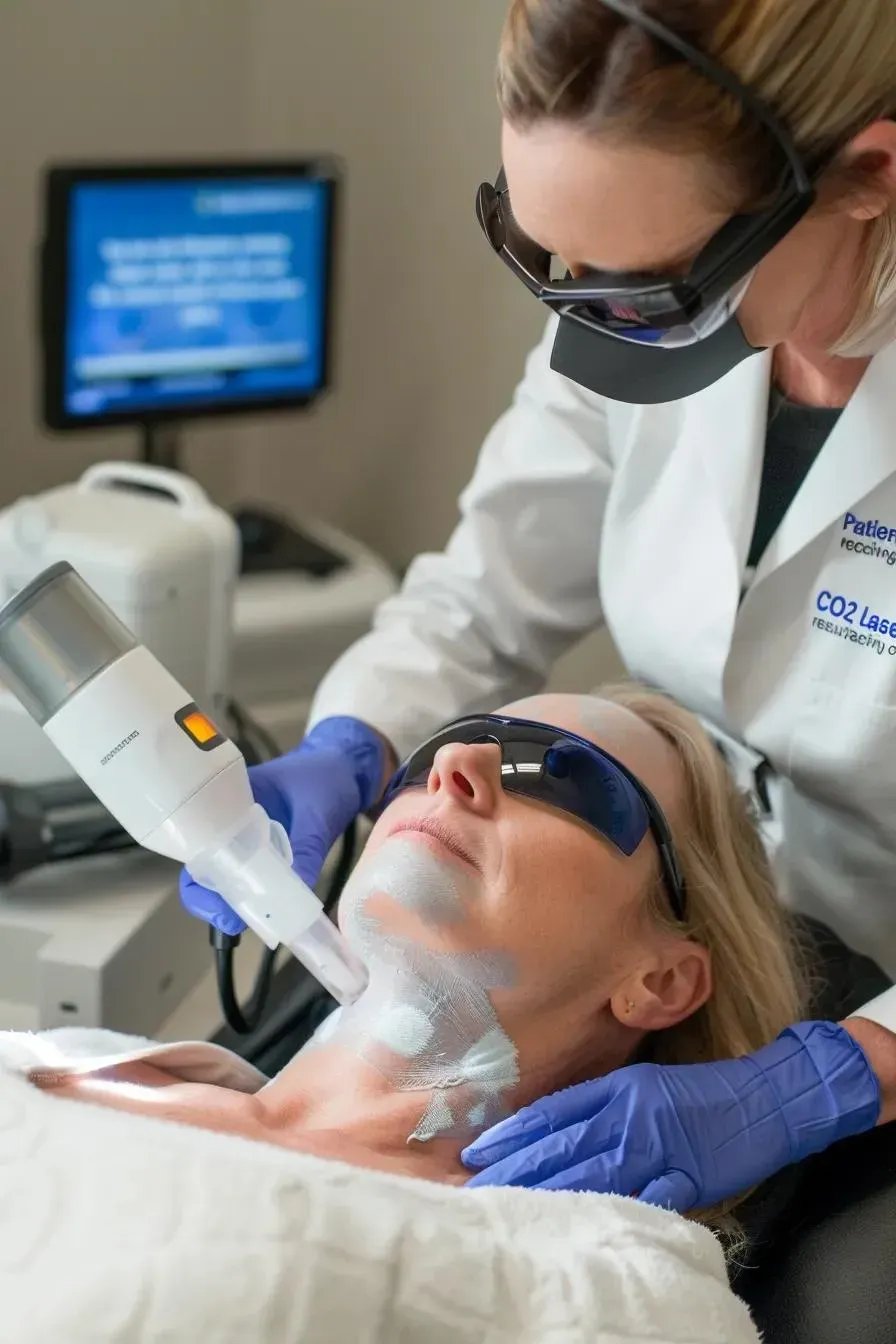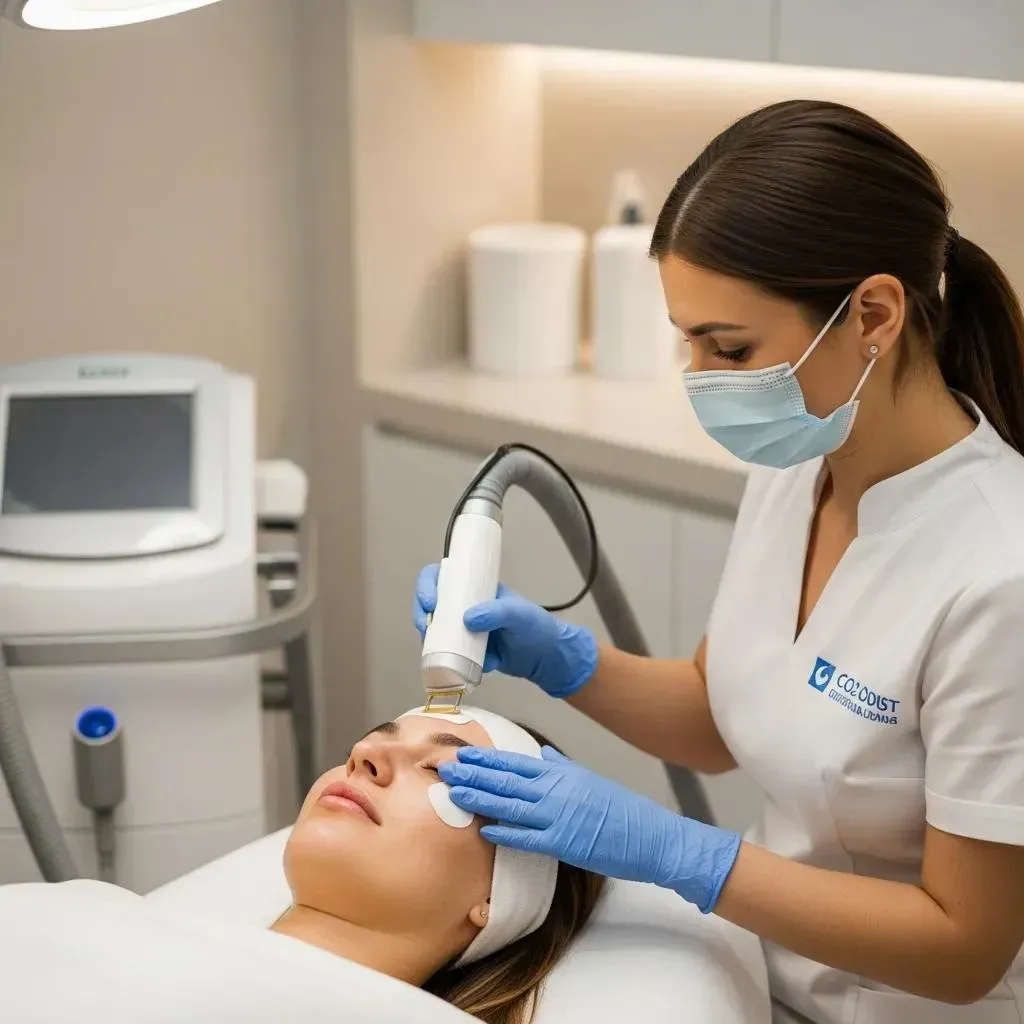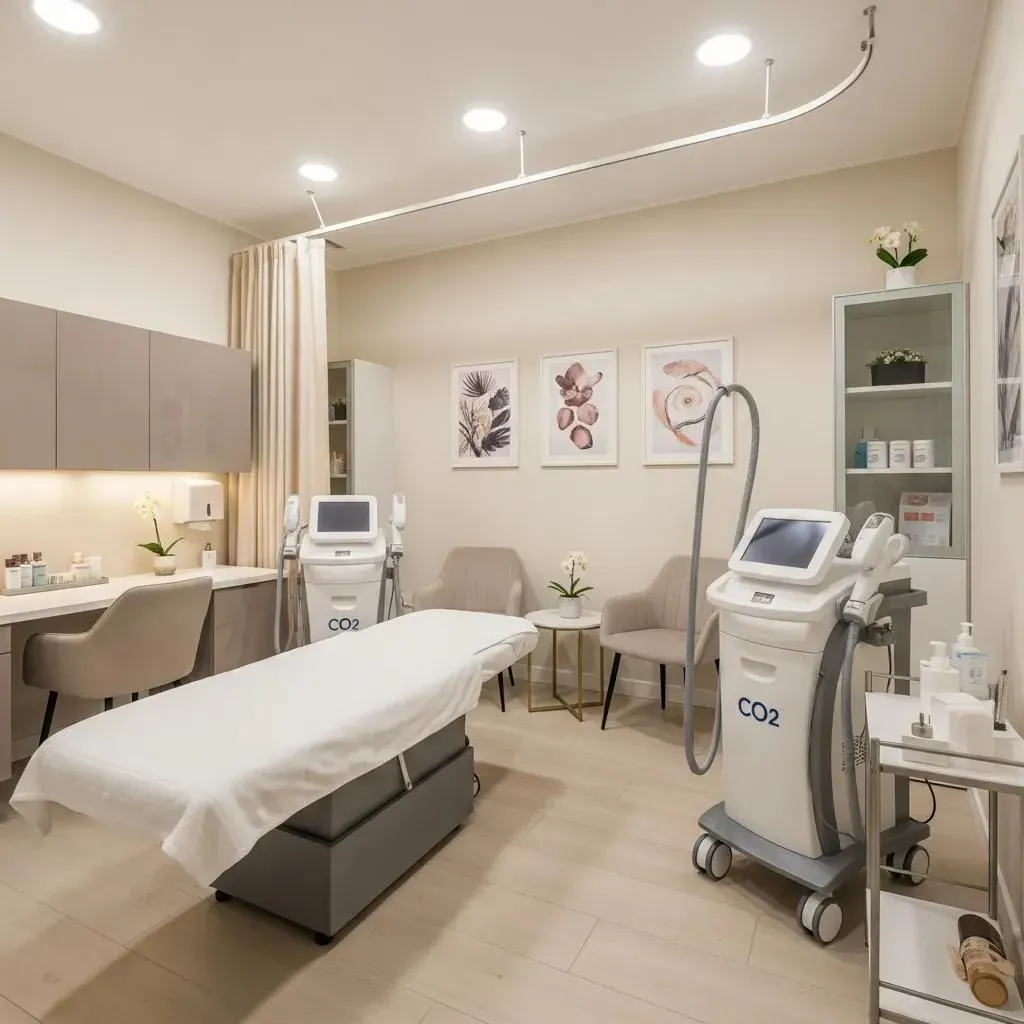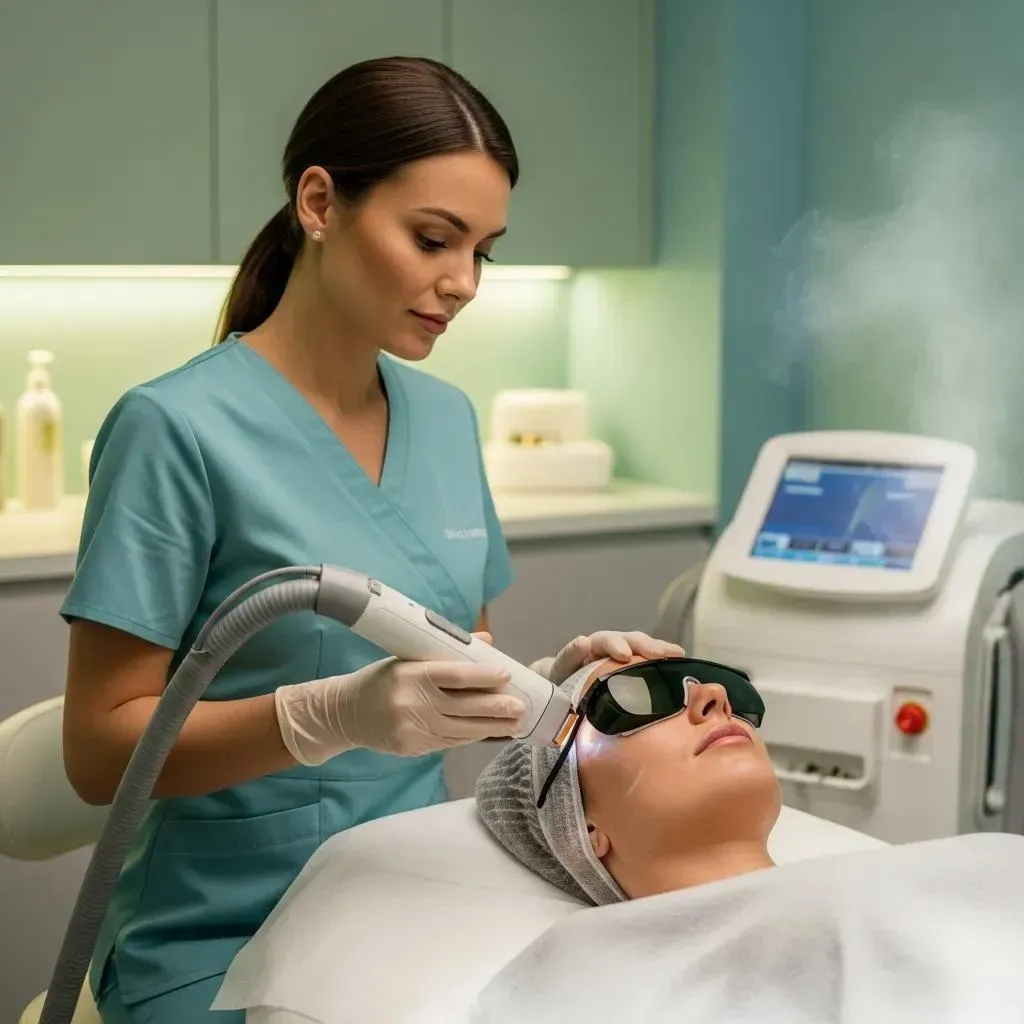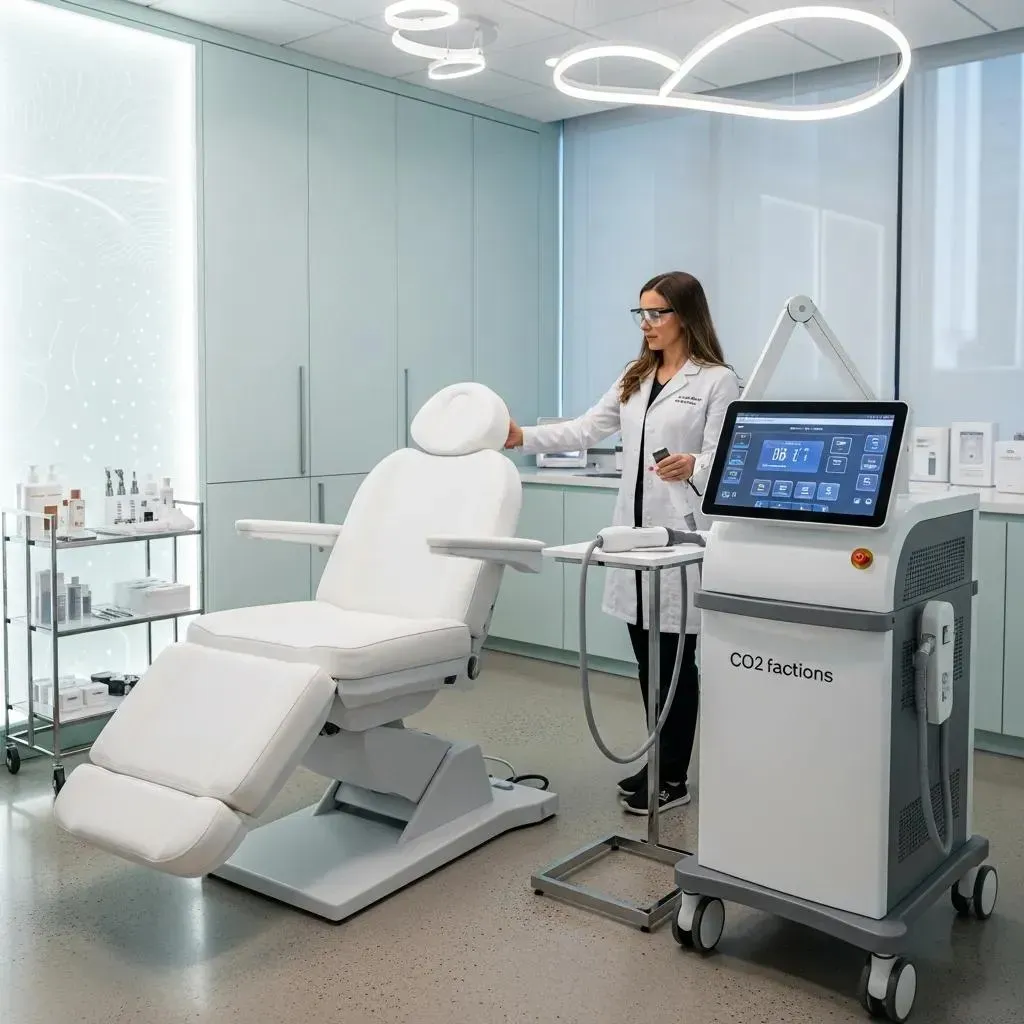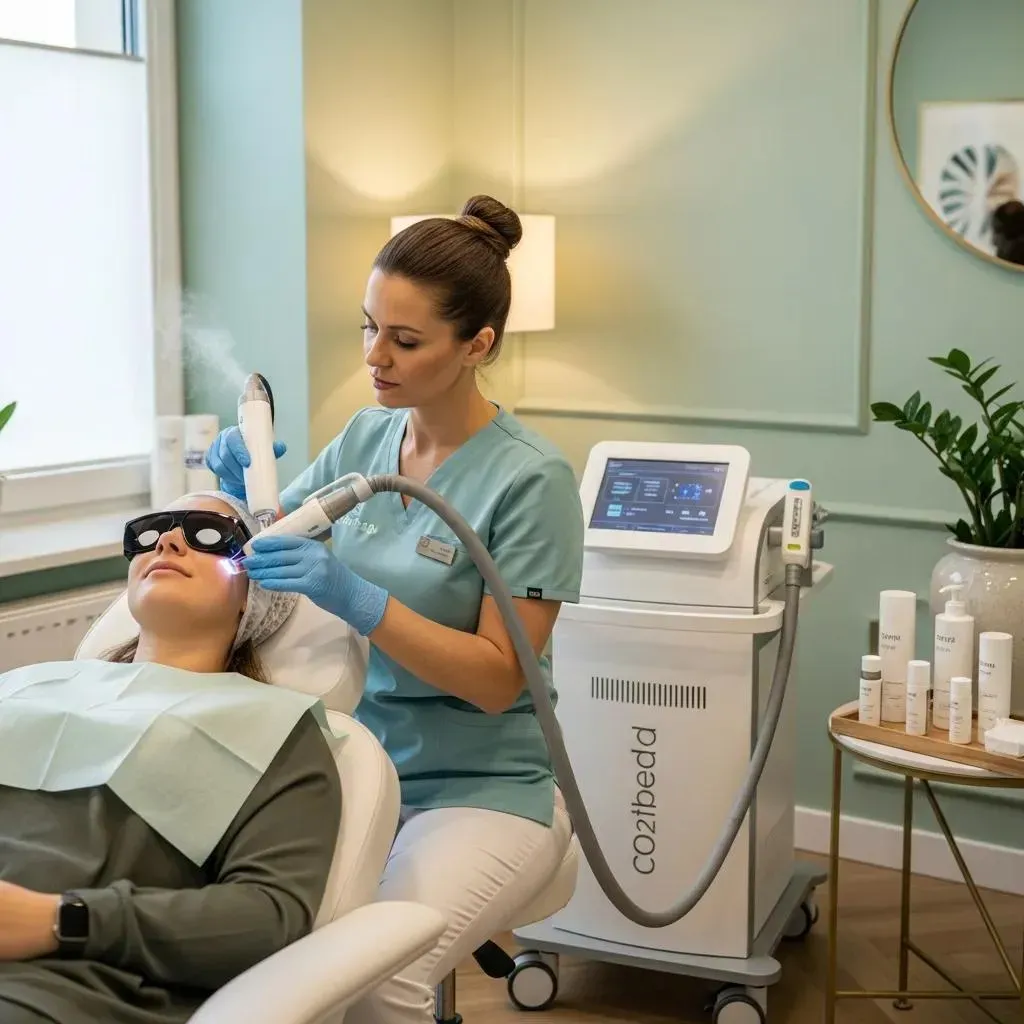Revitalize Your Skin: Top Natural Supplements for Anti Aging
Natural Supplements for Youthful Skin Benefits: How to Achieve Radiant, Anti-Aging Skin Naturally

Youthful skin refers to a combination of resilient elasticity, even tone, robust hydration, and minimized fine lines that together create a healthier, more radiant appearance; natural supplements work from within to support these outcomes by promoting collagen synthesis, reducing oxidative stress, and improving extracellular matrix hydration. This article explains how targeted nutraceuticals—collagen peptides, vitamin C, CoQ10, oral hyaluronic acid, omega-3s and related nutricosmetics—support structural proteins, antioxidants, and cellular repair pathways that translate into visible skin benefits. Many people wonder which supplements are evidence-based, how quickly they produce change, and how oral products complement topical regimens or clinical procedures. You will learn the primary supplements with mechanisms and evidence, how supplements biologically rejuvenate skin, practical dosing and quality checks, and how supplements can be integrated with medical spa treatments for better, longer-lasting results. The guide also offers local purchasing guidance for Madison, AL residents and explains what to consider when choosing products for safety and efficacy. Read on for clear checklists, comparison tables, and actionable routines to apply nutricosmetic strategies to real-world skin goals.
What Are the Key Natural Supplements That Promote Youthful Skin?
Key natural supplements deliver youthful skin benefits by acting on three core pathways: supplying building blocks for collagen and extracellular matrix, providing antioxidants that limit damage, and improving hydration and barrier function to reduce fine lines. Collagen peptides, vitamin C, CoQ10, hyaluronic acid, and omega-3 fatty acids represent the most consistently studied categories for elasticity, hydration, tone, and wrinkle depth. Each agent contributes a distinct mechanism—collagen provides structural amino acids; vitamin C is a cofactor for collagen formation and an antioxidant; CoQ10 supports cellular energy and reduces oxidative stress; hyaluronic acid retains water and plumps tissue; omega-3s reduce inflammation and support barrier function. The following list summarizes the top supplements and succinct benefits to help prioritize choices.
Top supplements for youthful skin:
- Collagen peptides: Provide amino acids for dermal matrix support and improve elasticity and wrinkle depth.
- Vitamin C (ascorbic acid): Cofactor for collagen hydroxylation and antioxidant protection that brightens tone.
- CoQ10 (ubiquinol/ubiquinone): Mitochondrial cofactor and antioxidant that reduces photoaging markers.
- Oral hyaluronic acid: Enhances skin hydration and turgor by supporting extracellular water retention.
- Omega-3 fatty acids: Lower inflammation and preserve barrier function, aiding texture and redness reduction.
This quick overview sets up a comparative view of how each supplement stacks up across mechanism, evidence, and practical form.
Different supplements play complementary roles in skin health; the table below compares the primary options so you can match mechanism to your skin priorities.
| Supplement | Mechanism | Main Skin Benefits | Recommended Form | Evidence Level |
|---|---|---|---|---|
| Collagen peptides | Provides amino acids (Gly-Pro-Hyp) for dermal matrix | Improved elasticity, reduced wrinkle depth | Hydrolyzed collagen peptides (bovine or marine) | Moderate–High (RCTs, 8–12 weeks) |
| Vitamin C (ascorbic acid) | Cofactor for collagen hydroxylation; antioxidant | Brighter tone, supports collagen synthesis | Liposomal/oral or topical stabilized forms | High (mechanistic + clinical) |
| CoQ10 (ubiquinol) | Antioxidant; supports mitochondrial energy | Reduces oxidative damage; may improve fine lines | Ubiquinol form (reduced) | Moderate (small RCTs) |
| Hyaluronic acid (oral) | Water-binding glycosaminoglycan | Increased hydration and plumpness | Low-MW oral HA supplements | Moderate (short-term studies) |
| Omega-3 fatty acids | Anti-inflammatory, membrane support | Improves barrier, reduces redness | EPA/DHA fish oil or algal oil | Moderate (anti-inflammatory evidence) |
This comparison highlights how combining distinct mechanisms—structural support, antioxidant protection, and hydration—creates a multi-pronged approach to youthful skin. The next section explains the biology behind these effects so you can understand why combinations often work best.
How Does Collagen Support Skin Elasticity and Reduce Wrinkles?

Collagen supplies the structural framework of the dermis, and supplemental hydrolyzed collagen peptides provide absorbable amino acids that support synthesis of collagen type I and III in skin. When consumed consistently, collagen peptides increase circulating peptide fragments that may act as signaling molecules and supply glycine and proline needed for new fibril formation, which can restore dermal thickness and elasticity. Clinical trials frequently report measurable improvements in wrinkle depth and skin firmness after 8–12 weeks of daily supplementation, with better outcomes when paired with vitamin C as a cofactor. For practical use, choose hydrolyzed peptide formulations known for bioavailability and consider marine or bovine sources based on allergies and dietary preferences; this sets up pairing strategies with antioxidants described next.
What Are the Anti-Aging Benefits of Vitamin C for Skin Health?

Vitamin C acts both as a direct antioxidant and as an essential enzymatic cofactor for proline and lysine hydroxylation during collagen synthesis, making it central to healthy dermal repair processes. Orally, vitamin C raises systemic antioxidant capacity and supports collagen formation; topically, it directly stabilizes and boosts dermal collagen at treatment sites. Combining oral vitamin C with collagen peptides enhances the efficiency of new collagen cross-linking, often leading to faster visible improvements in tone and texture. Typical supplemental strategies use a daily oral dose within established safe ranges and prefer stabilized or liposomal formulations for improved bioavailability, especially when oxidative stress or sun exposure is a major concern.
How Does Coenzyme Q10 Help Reduce Skin Aging Signs?
Coenzyme Q10 functions as a lipid-soluble antioxidant within cell membranes and as an essential component of mitochondrial electron transport, which supports ATP production and cellular repair in dermal cells. Ubiquinol, the reduced form, is typically better absorbed and more active as an antioxidant in skin tissues; supplementation can lower markers of photo-oxidative damage and contribute to improvements in fine lines and skin texture. Clinical research suggests modest but measurable benefits over several months, particularly in antioxidative protection and photodamage reduction. Given its role in cellular energy, CoQ10 can synergize with other antioxidants to protect newly synthesized collagen from oxidative degradation.
Why Is Hyaluronic Acid Essential for Skin Hydration and Plumpness?
Hyaluronic acid is a glycosaminoglycan with exceptional water-binding capacity that maintains dermal turgor and elasticity; oral low-molecular-weight HA supplements can increase skin hydration and perceived plumpness by supporting systemic pools of HA precursors. While topical HA provides immediate surface hydration, oral HA complements by influencing deeper extracellular matrix hydration and may amplify the volumizing effects that reduce the appearance of fine lines. Short-term studies commonly report improvements in skin moisture and elasticity within weeks, and oral HA pairs naturally with collagen supplementation to support both structure and hydration. Choosing forms with demonstrated absorption enhances the likelihood of clinical benefit.
Which Other Natural Supplements Support Skin Rejuvenation?
Beyond the core five, several adjunctive supplements support skin health through anti-inflammatory, antioxidant, or barrier-enhancing actions. Resveratrol and glutathione provide antioxidant and detoxifying effects, biotin assists in keratin health, and probiotics influence skin via the gut-skin axis to modulate inflammation and barrier integrity. Each of these agents targets a specific pathway, and evidence varies from emerging to moderate depending on the compound and outcome measured. Practical implementation often combines one or two adjuncts with core supplements to address individual concerns like redness, dryness, or pigmentation.
This set of targeted supplements forms the foundation for designing a personalized, evidence-informed nutricosmetic regimen. The next section explains the biological mechanisms by which these agents rejuvenate skin from within.
How Do Natural Supplements Work to Rejuvenate Skin from Within?
Natural supplements rejuvenate skin by addressing cellular damage, providing structural building blocks, and modulating inflammation—three interlinked processes that affect visible aging. Antioxidants neutralize free radicals to prevent collagen and lipid damage, amino acid-rich supplements supply the substrates for new collagen synthesis, and hydrating agents support extracellular matrix viscosity and volume. At the cellular level, improved mitochondrial function and reduced oxidative stress support fibroblast activity and extracellular matrix turnover, translating molecular changes into firmer, more hydrated skin. Understanding these mechanisms clarifies why combined supplementation often outperforms single-agent approaches and why consistent use over weeks to months is necessary to observe structural gains.
What Is the Role of Antioxidants in Protecting Skin Cells?
Antioxidants such as vitamin C, vitamin E, CoQ10, and resveratrol neutralize reactive oxygen species that otherwise damage proteins, lipids, and DNA in skin cells, accelerating visible aging. By scavenging free radicals and regenerating oxidized molecules, these compounds reduce collagen breakdown and inflammation, preserving dermal architecture. Antioxidant supplementation supports both preventative strategies against photoaging and recovery after procedures that transiently increase oxidative stress, such as laser resurfacing. Choosing a mix of water- and lipid-soluble antioxidants ensures protection across different cellular compartments and enhances overall resilience of skin tissues.
How Do Supplements Boost Collagen Production and Skin Repair?
Collagen synthesis requires amino acids (glycine, proline, hydroxyproline), vitamin C for hydroxylation of proline and lysine, and minerals such as zinc and copper as enzymatic cofactors; supplements can supply or augment each of these elements. Collagen peptides provide the amino acid building blocks, while vitamin C ensures proper enzymatic processing of procollagen to stable fibrils. Other nutrients, including certain amino acids and trace minerals, support cross-linking and maturation of collagen fibers, improving tensile strength and thickness of the dermis over time. Targeted supplementation thus addresses both substrate availability and enzymatic efficiency in tissue repair.
Can Natural Supplements Improve Skin Elasticity and Hydration?
Clinical and mechanistic studies indicate that supplements like collagen peptides, oral hyaluronic acid, and omega-3s reliably improve skin hydration and elasticity, typically showing early hydration gains within 2–6 weeks and structural collagen-related improvements by 8–12 weeks. Effects vary with baseline skin condition, age, dosage, and product quality, but consistent daily use commonly yields perceptible improvements in firmness and reduced wrinkle depth within typical clinical trial windows. Combining hydration-focused agents (oral HA) with structural support (collagen) and antioxidant protection accelerates visible outcomes and sustains them when used alongside sun protection and healthy lifestyle habits.
What Is Nutricosmetics and Its Impact on Skin Health?
Nutricosmetics describes ingestible products formulated to improve skin, hair, and nail appearance by delivering targeted nutrients that act systemically to support beauty outcomes. The nutricosmetics market has expanded rapidly due to consumer demand for holistic, science-backed "beauty-from-within" solutions, combining peptides, antioxidants, and hydrating agents into daily regimens. While product formulations vary widely in quality and evidence, well-designed nutricosmetic protocols integrate core supplements, dosing consistency, and lifestyle measures for measurable returns on skin health. Understanding product claims, evidence levels, and personalization helps consumers navigate this growing category effectively.
How Can Natural Supplements Complement Medical Spa Treatments for Youthful Skin?
Natural supplements complement medical spa treatments by preparing tissue, reducing inflammation, and supporting repair to extend and amplify clinical outcomes. Supplements that boost collagen synthesis and antioxidant defenses can improve recovery after procedures like laser resurfacing, enhance filler longevity, and aid tissue remodeling following fractional treatments. For patients undergoing systemic therapies that influence tissue repair—such as hormone modulation in anti-aging programs—targeted nutraceutical support can be an adjunct to optimize skin results. Below is a mapping of common supplements to typical in-clinic procedures that illustrates potential synergies and timing considerations.
| Supplement | Clinic Treatment | How It Enhances Treatment | Recommended Form | Evidence Level |
|---|---|---|---|---|
| Collagen peptides | Laser resurfacing (CO2/fractional) | Supports dermal matrix repair and speeds structural recovery | Hydrolyzed collagen peptides (bovine or marine) | Moderate–High (RCTs, 8–12 weeks) |
| Vitamin C & antioxidants | Photofacial, chemical peels | Reduces oxidative stress, aids healing, and supports collagen stabilization | Liposomal/oral or topical stabilized forms | High (mechanistic + clinical) |
| Oral hyaluronic acid | Dermal fillers | Improves hydration and may complement volumizing effects | Ubiquinol form (reduced) | Moderate (small RCTs) |
| Omega-3 fatty acids | Injectable procedures; inflammatory-prone treatments | Lowers inflammation, supports smoother recovery | Low-MW oral HA supplements | Moderate (short-term studies) |
| CoQ10 | Any skin procedure involving oxidative stress | Enhances cellular energy for repair and reduces photo-oxidative damage | EPA/DHA fish oil or algal oil | Moderate (anti-inflammatory evidence) |
Growing Younger Clinic offers integrated aesthetic and anti-aging services that can complement supplement strategies for residents seeking personalized protocols. The clinic provides consultative planning that aligns nutraceutical recommendations with in-clinic procedures—such as injectables, laser resurfacing, and hormone optimization programs—so patients receive coordinated timing and monitoring. Growing Younger Clinic highlights free consultations and access to certified medical professionals who can advise on safe combinations with procedures like fillers or laser treatments, encouraging a medically supervised approach to combining supplements and aesthetic care.
How Does HGH Therapy Enhance the Effects of Skin Supplements?
Human Growth Hormone (HGH) therapy, as provided in medical anti-aging programs, is proposed to support systemic tissue repair, thickness, and metabolic regulation that can augment skin regeneration when used under medical supervision. By influencing collagen turnover, skin thickness, and overall anabolism, appropriate hormone optimization may enhance the structural substrate that supplements act upon, potentially improving the effectiveness of collagen peptides and related agents. Because hormone therapy interacts with systemic physiology, medical consultation is essential to coordinate timing and monitor safety—combining treatments should always follow individualized clinical assessment.
Which Clinic Treatments Work Best with Collagen and Vitamins?
Certain procedures synergize particularly well with collagen support and antioxidant supplementation: pre-treatment collagen peptide use primes dermal fibroblasts for repair, antioxidants reduce procedure-related oxidative stress, and oral hyaluronic acid supports volumetric outcomes with fillers. Practical timing often recommends initiating collagen and vitamin C at least 4–8 weeks before major resurfacing or injectables and continuing for several months afterward to support remodeling. The clinical pairing below summarizes practical pairings and timing.
- Laser resurfacing (CO2/fractional): Start collagen + vitamin C 4–8 weeks pre-procedure and continue post-procedure to support repair.
- Injectables (fillers): Maintain collagen/hydration support to potentially enhance filler integration and longevity.
- HydraFacial and light therapies: Use antioxidants and omega-3s to reduce inflammation and enhance skin quality between sessions.
These protocol suggestions require clinician oversight and individualized adjustments based on medical history and concurrent therapies.
What Are the Benefits of Combining Supplements with Aesthetic Procedures?
Combining supplements with aesthetic procedures can yield tangible benefits: faster recovery, improved tissue quality, more natural remodeling, and potentially longer-lasting visual results. Supplements provide systemic support that complements the focused mechanical or thermal effects of clinical treatments, enabling fibroblasts and repair pathways to operate with sufficient substrates and antioxidant protection. Patients often experience reduced downtime and progressive enhancement of outcomes when supplements are timed strategically around procedures. Always consult a qualified medical provider to design a combined plan that addresses interactions, dosing schedules, and monitoring.
What Should You Consider When Choosing Natural Supplements for Skin Health?
Selecting effective supplements requires attention to product quality, provenance, dosing, interactions, and personalization—each factor directly impacts safety and efficacy. High-quality products disclose source (marine vs bovine), provide dosage transparency, and carry third-party testing or certification to confirm purity and absence of contaminants. Consumers should also consider potential interactions with medications or hormone therapies and seek personalization based on age, skin concerns, and laboratory markers. The checklists and comparison table below offer concrete selection criteria to evaluate products and brands.
Key selection checklist:
- Look for third-party testing or certifications and transparent ingredient sourcing.
- Verify dosage aligns with research-backed ranges and prefer bioavailable forms (hydrolyzed peptides, ubiquinol, liposomal vitamin C).
- Check for allergen disclosures (fish, bovine) and absence of heavy metals or contaminants.
- Consider medical review if on prescriptions or undergoing hormone/clinical therapies.
| Quality Attribute | What to Check | Why It Matters | Recommended Form | Evidence Level |
|---|---|---|---|---|
| Source Transparency | Marine vs bovine vs porcine, clear labeling | Source affects allergen risk and peptide profile | Hydrolyzed collagen peptides (bovine or marine) | Moderate–High (RCTs, 8–12 weeks) |
| Third-Party Testing | USP, NSF, or independent COA availability | Confirms purity and absence of contaminants | Liposomal/oral or topical stabilized forms | High (mechanistic + clinical) |
| Formulation | Hydrolyzed peptides, ubiquinol, stabilized vitamin C | Impacts absorption and bioactivity | Ubiquinol form (reduced) | Moderate (small RCTs) |
| Dosage Clarity | Explicit mg/g per serving and dosing instructions | Ensures therapeutic exposure consistent with studies | Low-MW oral HA supplements | Moderate (short-term studies) |
| Safety Information | Interaction warnings, allergen statements | Prevents adverse effects when combined with meds/therapies | EPA/DHA fish oil or algal oil | Moderate (anti-inflammatory evidence) |
Why Is Supplement Quality and Source Important for Skin Benefits?
Quality and source determine both safety and biological activity; marine collagen differs in peptide profile from bovine collagen and may suit some skin goals better, while low-quality products risk contamination or poor absorption. Third-party certificates of analysis (COAs) and independent testing indicate the manufacturer’s commitment to purity and accurate labeling. Bioavailable forms—hydrolyzed peptides for collagen, ubiquinol for CoQ10, and stabilized forms for vitamin C—improve systemic uptake and therefore clinical effect. Prioritizing verified, reputable formulations is essential to translating supplement investment into visible skin benefits.
How Can Personalized Supplement Plans Improve Skin Results?
Personalized plans align supplement selection and dosing with an individual’s age, skin phenotype, medical history, hormonal status, and lifestyle, which increases efficacy and minimizes risks. Tailoring may include lab assessments (nutrient levels, hormone profiles), dietary evaluation, and coordination with clinical procedures to optimize timing and avoid interactions. Clinically supervised personalization helps identify contraindications and ensures supplements complement, rather than conflict with, treatments like hormone therapy or prescription medications. A customized plan therefore tends to deliver more consistent and reliable skin outcomes than generic recommendations.
What Are the Recommended Dosages and Forms of Key Supplements?
Evidence-backed dosing varies by supplement but typically falls in these commonly used ranges: collagen peptides 2.5–10 g daily (hydrolyzed peptides), vitamin C 250–1,000 mg daily (oral stabilized forms), CoQ10 100–300 mg daily (prefer ubiquinol), oral hyaluronic acid 50–200 mg daily, and omega-3s providing 500–1,000 mg combined EPA/DHA. Preferred forms emphasize bioavailability—hydrolyzed peptides for collagen, ubiquinol for CoQ10, and stabilized or liposomal vitamin C—while timing with meals often enhances absorption for fat-soluble nutrients. Medical supervision is advised for higher therapeutic doses or when combining with other treatments.
What Are the Best Natural Supplements for Youthful Skin Available in Madison, AL?
Madison residents can source high-quality skin supplements through reputable local pharmacies, specialty health stores, and vetted online suppliers that provide third-party testing details and clear sourcing information. When shopping locally, ask staff for product lot numbers or certificates of analysis and prefer stores that stock brands with transparent manufacturing practices and verified purity. For those who prefer clinician-guided selection, medical aesthetic practices can offer consultative support to align supplement choices with procedures and personal medical history. The following paragraphs outline practical steps to find safe products nearby and how a clinic can support a coordinated plan.
Where to look locally:
- Specialty health retailers that disclose third-party testing and ingredient sourcing.
- Pharmacies with compounding or medical-grade supplement lines for higher-assurance products.
- Clinics offering consultative guidance to match supplements to treatments and monitor outcomes.
Where to Find High-Quality Skin Supplements Near Madison, AL?
Begin by prioritizing local stores and pharmacies that display product transparency—clear labels, COAs on request, and staff trained to explain sourcing and dosing. Ask for third-party testing information and seek brands that publish independent laboratory results; this reduces the risk of heavy metal contamination or mislabeling. If a local retailer cannot provide verification, reputable online vendors that share COAs and batch testing are acceptable alternatives, provided you verify return policies and authenticity. Local vetting saves time and ensures you acquire supplements aligned with the evidence-based dosing discussed earlier.
How Does Growing Younger Clinic Support Supplement Use for Skin Health?
Growing Younger Clinic in Madison, AL provides consultative services that integrate supplemental strategies with in-clinic aesthetic and anti-aging care, helping patients align nutraceutical choices with procedures like injectables, laser services, and hormone optimization programs. The clinic emphasizes free consultations and access to certified medical professionals who can advise on safety, timing, and personalization—ensuring supplements are coordinated with treatments and individualized health needs.
What Do Madison Residents Say About Combining Supplements and Clinic Treatments?
Local sentiment often favors combined approaches when patients receive clear guidance and medical oversight; anecdotal reports suggest better recovery and sustained improvements when supplements are timed with procedures, though collecting systematic outcome data enhances credibility. Clinics are encouraged to gather anonymized, consented patient outcome data and testimonials to document real-world effectiveness while adhering to privacy regulations. For prospective patients, asking a clinic about tracked outcomes and typical integration protocols helps set realistic expectations before beginning a combined supplement-plus-treatment plan.
What Are the Most Common Questions About Natural Supplements for Youthful Skin?
Consumers frequently ask whether supplements truly work, which collagen type is best, whether vitamins C and E improve radiance, how long results take, and what risks exist; concise, evidence-based answers clarify expectations and next steps. The Q&A below provides direct responses optimized for quick reference and follow-up detail in earlier sections, helping readers make informed decisions and understand when to seek medical advice.
Do Natural Supplements Really Help Skin Look Younger?
Yes—when chosen appropriately and used consistently, natural supplements can produce measurable improvements in hydration, elasticity, and wrinkle appearance, particularly when combined with sun protection and clinical care. Evidence from randomized trials supports modest to moderate improvements in skin firmness and wrinkle depth for collagen peptides, hydration gains for oral hyaluronic acid, and antioxidative benefits for vitamin C and CoQ10, typically observed over 6–12 weeks. Results vary by baseline health, age, and product quality, and best outcomes occur when supplements complement topical care and lifestyle measures rather than replacing them.
What Is the Best Collagen Type for Anti-Aging Skin Benefits?
Types I and III collagen are most relevant for skin structure; hydrolyzed collagen peptides derived from bovine or marine sources are preferred for absorption and have the strongest clinical support for skin outcomes. Marine collagen often has a higher proportion of type I peptides and may be favored for skin-specific goals, while bovine sources provide a broader matrix of peptides. Individuals with fish allergies or dietary restrictions should select appropriate sources accordingly, and choosing hydrolyzed forms optimizes bioavailability.
Can Vitamins Like C and E Make Your Skin More Radiant?
Vitamin C and vitamin E act synergistically as antioxidants and can improve skin radiance and tone by reducing oxidative damage and supporting collagen stability. Oral vitamin C enhances systemic antioxidant capacity and supports collagen formation, while topical vitamin C delivers concentrated antioxidant effects to the epidermis; combined oral/topical strategies often yield the most noticeable tone and brightness improvements. Expect gradual changes over weeks with consistent use and combine antioxidants with sun protection for optimal radiance benefits.
How Long Does It Take to See Results from Skin Supplements?
Different outcomes follow distinct timelines: hydration and surface plumping may improve within 2–6 weeks, while collagen-mediated structural changes that reduce wrinkle depth typically require 8–12 weeks or longer of consistent supplementation. Individual factors—age, baseline nutrient status, concurrent treatments, and product quality—affect the speed and magnitude of change. Patience and adherence to recommended dosing, plus healthy lifestyle habits, increase the likelihood of clinically meaningful results.
Are There Any Risks or Side Effects of Taking Skin Supplements?
Most skin supplements are well tolerated, but risks include allergic reactions (e.g., to marine collagen), gastrointestinal upset, interactions with prescription medications, and contamination in poorly regulated products. Quality control issues such as heavy metals or inaccurate labeling underscore the importance of third-party testing and medical consultation when on medications or undergoing hormone or clinical therapies. If you experience adverse effects or have chronic health conditions, consult a qualified healthcare professional before starting new supplements.
How to Integrate Natural Supplements Into Your Daily Skin Care Routine?
Integrating supplements into daily care involves consistent dosing, timing to optimize absorption, and pairing with topical treatments and lifestyle habits that support skin repair and protection. Place structural supplements like collagen peptides in morning or evening routines for habit formation, take fat-soluble nutrients with meals containing healthy fats for absorption, and use antioxidants both orally and topically to cover systemic and local protection. Supplements are complementary—not replacements—for proven topical agents such as retinoids or sunscreen; combining systemic and topical approaches produces the most reliable skin improvements. The routine tips and timing considerations below help translate product selection into daily practice.
Practical routine checklist:
- Take fat-soluble nutrients with meals containing fat to improve uptake.
- Start collagen and vitamin C several weeks before procedures and continue after for healing.
- Use oral hydration supports (HA) together with topical moisturizers for layered hydration.
- Maintain sun protection and sleep, which are essential to realizing supplement benefits.
When Is the Best Time to Take Skin Supplements for Maximum Effect?
Timing depends on the nutrient: fat-soluble compounds and CoQ10 are best taken with a meal containing fat, while collagen peptides and oral hyaluronic acid can be taken any time daily for consistency—many prefer morning with coffee or evening with a snack. For procedural planning, begin structural and antioxidant supplements 4–8 weeks prior to major treatments to prime tissue and continue for several months post-procedure to support remodeling. Spreading doses across the day can maintain steady substrate availability for repair processes.
Can Supplements Replace Topical Skin Care Products?
No—supplements complement but do not replace topical regimens; topicals act locally to modulate epidermal turnover, pigmentation, and barrier function while supplements provide systemic substrates and protection for deeper dermal repair. Combining oral collagen with a topical retinoid or vitamin C serum often yields superior results because topical agents drive cellular turnover and surface improvement while oral agents support structural rebuilding. Use both approaches together for a comprehensive strategy.
What Lifestyle Habits Enhance the Benefits of Skin Supplements?
Lifestyle factors strongly influence supplement effectiveness: regular sleep supports repair cycles, sun protection prevents ongoing collagen breakdown, a balanced diet supplies cofactors and reduces oxidative burden, and smoking cessation plus alcohol moderation reduce systemic inflammation. Exercise and hydration enhance circulation and nutrient delivery to skin, while stress management lowers cortisol-related collagen degradation. Implementing these habits alongside targeted supplements accelerates and magnifies visible skin improvements.
What Are the Latest Trends and Research in Natural Supplements for Youthful Skin?
Recent trends in 2024–2025 emphasize evidence-based nutricosmetics, personalized nutrition, and combination formulations that pair peptides, antioxidants, and hydrating agents for multi-target benefits. Research continues to refine effective dosages and identify which compound combinations yield the most reliable outcomes, with several randomized trials supporting collagen peptides, oral HA, and antioxidant pairings for measurable improvements in elasticity and hydration. The market is moving towards transparency—third-party testing, clinically validated formulations, and clinician-guided personalization—which helps consumers separate marketing from meaningful products. Below are snapshots of research highlights and consumer implications.
Key market and research takeaways:
- Nutricosmetics growth: Greater consumer demand for validated, multi-ingredient products and clinical substantiation.
- Emerging study support: Recent RCTs reinforce collagen peptide benefits for elasticity and hydration.
- Personalized nutrition: Lab-driven protocols tailoring supplements to individual biomarkers improve outcomes and reduce risk.
How Is the Nutricosmetics Market Growing and What Does It Mean for Consumers?
The nutricosmetics market has expanded as consumers seek holistic beauty approaches, increasing product variety but also elevating the need for rigorous vetting; growth favors brands that publish clinical data and third-party testing. For consumers, this means more options but also an imperative to evaluate evidence, sourcing, and transparency rather than relying on marketing claims. Clinically guided selection and purchasing from suppliers that provide certificates of analysis reduce the risk of ineffective or unsafe products.
What Recent Studies Support Collagen and Antioxidant Use for Skin Health?
Recent randomized controlled trials and meta-analyses (2020–2025) generally support collagen peptide supplementation for improved skin elasticity and reduced wrinkle depth after 8–12 weeks, and they show antioxidant supplementation can mitigate oxidative markers associated with photoaging. While sample sizes and formulations vary, the trend favors multi-week consistent dosing and combinations (collagen + vitamin C) for stronger outcomes. Readers should consult primary literature or clinicians for details relevant to specific formulations.
How Is Personalized Nutrition Shaping the Future of Skin Supplementation?
Personalized nutrition—using labs, dietary patterns, and hormone assessments—enables targeted supplement regimens that match individual deficiencies and treatment plans, improving results while reducing unnecessary exposure. Clinics that integrate testing and monitoring can tailor doses, select appropriate forms, and align supplements with procedures such as injectables or hormone therapy, delivering more precise, evidence-aligned care. As personalization becomes more accessible, expect better alignment between supplement strategy and patient-specific skin goals.
Growing Younger Clinic can assist Madison-area patients interested in evidence-based, personalized supplementation integrated with clinic treatments; the clinic emphasizes free consultations and access to certified medical professionals who design safe, coordinated plans tailored to individual needs. With clinician oversight and transparent products, consumers can navigate the expanding nutricosmetics market more confidently and aim for durable, medically supported skin improvements.
Frequently Asked Questions
1. How do I know which natural supplements are right for my skin type?
Choosing the right natural supplements for your skin type involves understanding your specific skin concerns, such as dryness, aging, or sensitivity. Consulting with a healthcare professional or a dermatologist can provide personalized recommendations based on your skin's needs. Additionally, consider factors like your age, lifestyle, and any existing medical conditions. Look for supplements that target your specific issues, such as collagen for elasticity or hyaluronic acid for hydration, and ensure they are backed by clinical evidence for effectiveness.
2. Can I take multiple supplements at the same time for better results?
Yes, combining multiple supplements can enhance their effectiveness, as they may target different pathways in skin health. For instance, pairing collagen peptides with vitamin C can improve collagen synthesis and skin tone. However, it's essential to ensure that the supplements do not interact negatively with each other or with any medications you may be taking. Consulting a healthcare provider can help you create a balanced regimen that maximizes benefits while minimizing risks.
3. Are there any dietary changes I should consider alongside taking supplements?
Yes, dietary changes can significantly enhance the effectiveness of skin supplements. Incorporating a balanced diet rich in antioxidants, healthy fats, and hydration can support skin health from within. Foods high in vitamins C and E, omega-3 fatty acids, and zinc can complement the effects of your supplements. Additionally, staying hydrated and reducing processed foods can help improve skin texture and appearance. A holistic approach combining diet and supplementation often yields the best results.
4. How can I ensure the quality of the supplements I choose?
To ensure the quality of supplements, look for products that have undergone third-party testing for purity and potency. Check for certifications from reputable organizations, such as USP or NSF, which indicate that the product meets specific quality standards. Additionally, read labels carefully to verify ingredient sourcing and dosage. Choosing well-known brands with transparent manufacturing practices can also help ensure you are getting a high-quality product that is safe and effective.
5. What lifestyle factors can impact the effectiveness of skin supplements?
Lifestyle factors such as diet, sleep, stress levels, and sun exposure can significantly impact the effectiveness of skin supplements. A balanced diet rich in nutrients supports overall skin health, while adequate sleep allows for cellular repair and regeneration. High stress can lead to inflammation, which may counteract the benefits of supplements. Additionally, consistent sun protection is crucial, as UV exposure can degrade collagen and exacerbate skin aging. Adopting healthy habits alongside supplementation can enhance results.
6. How long should I take supplements before expecting to see results?
Results from skin supplements can vary based on the type of supplement and individual factors such as age and skin condition. Generally, improvements in hydration and surface texture may be noticeable within 2–6 weeks, while structural changes like reduced wrinkle depth may take 8–12 weeks or longer. Consistency is key; adhering to recommended dosages and maintaining a healthy lifestyle will help maximize the benefits over time. Patience is essential, as visible changes often require sustained use.
7. Are there any specific side effects associated with skin supplements?
While most skin supplements are well-tolerated, some individuals may experience side effects such as gastrointestinal discomfort, allergic reactions, or interactions with medications. For example, marine collagen may cause issues for those with fish allergies. It's crucial to choose high-quality products and consult with a healthcare professional before starting any new supplement, especially if you have pre-existing health conditions or are taking other medications. Monitoring your body's response can help identify any adverse effects early on.
Conclusion
Natural supplements for youthful skin offer a holistic approach to enhancing elasticity, hydration, and overall appearance by targeting key biological pathways. By integrating evidence-based options like collagen peptides, vitamin C, and hyaluronic acid, individuals can achieve visible improvements in skin health over time. For those in Madison, AL, exploring personalized supplement plans through local clinics can optimize results and ensure safety. Discover our range of high-quality supplements today to start your journey towards radiant skin.

